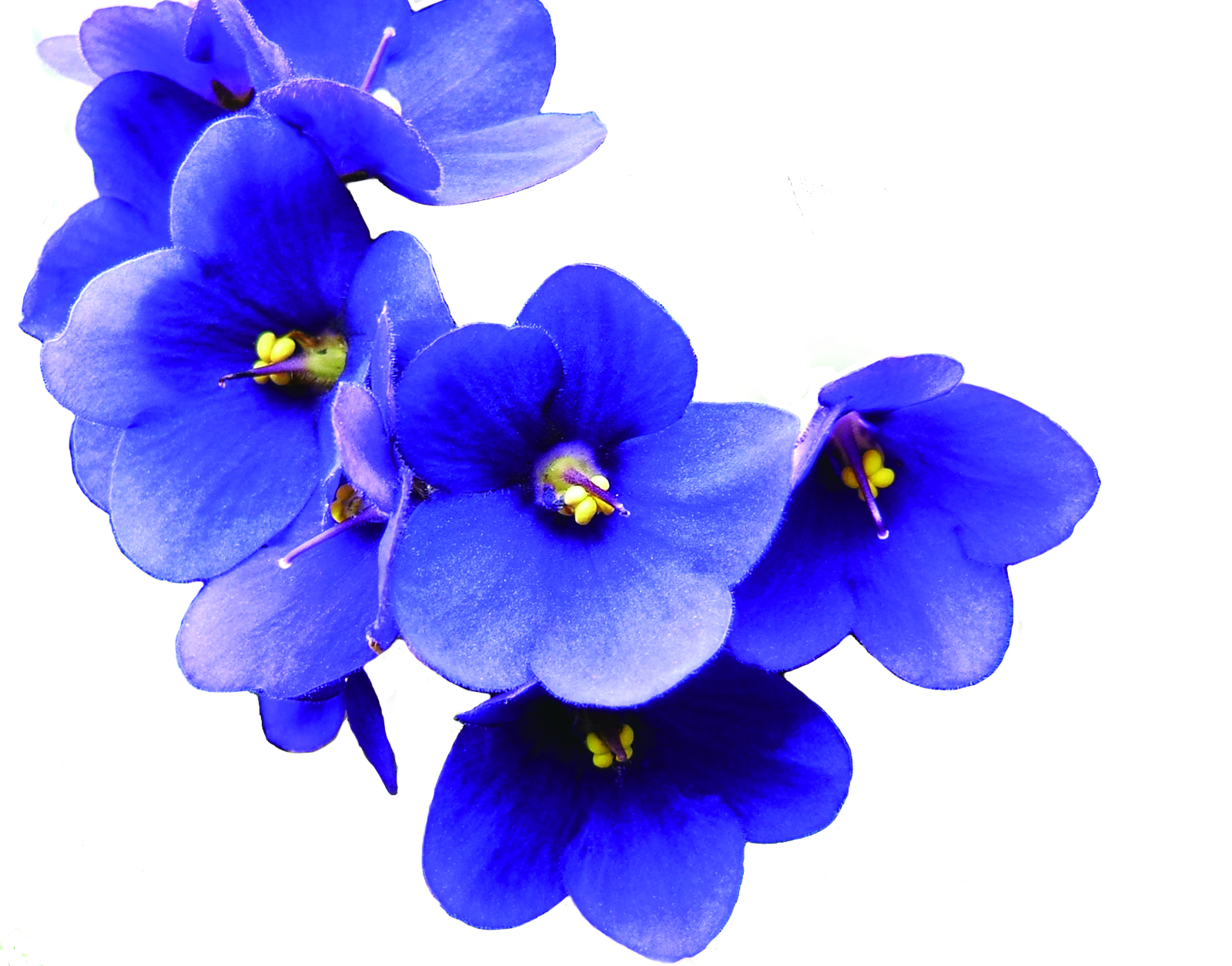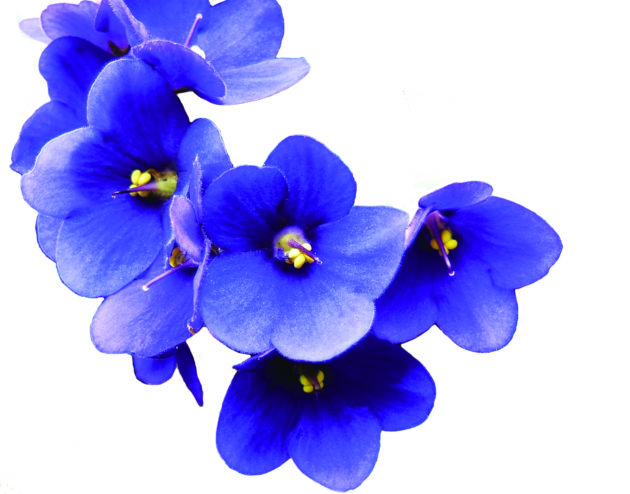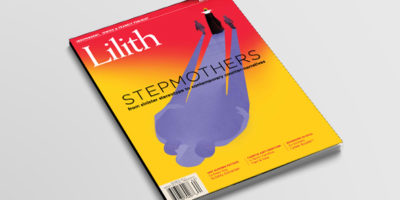
The Art of Tending African Violets
Sometimes insights into our relationships come late. As a child, Bat-Ami desperately wanted to be one of her mother’s beloved plants, and now knows she feared being rooted.
 When my mother would call me, she’d tell me about the things that filled her days: watching the sun rise over Montreal, carefully watering her African violets. Liquid had to be placed in a saucer under the pot so that the fragile roots could sip up sustenance. When my mother could call me — when familiar numbers had not yet turned into an indecipherable language — she would instruct me on the care of her exotic beauties. Don’t touch the leaves. They get brown when you touch. Before hanging up, Mom asked if I ate enough, slept enough, and watched after myself. She understood that self-tending does not come easily to me.
When my mother would call me, she’d tell me about the things that filled her days: watching the sun rise over Montreal, carefully watering her African violets. Liquid had to be placed in a saucer under the pot so that the fragile roots could sip up sustenance. When my mother could call me — when familiar numbers had not yet turned into an indecipherable language — she would instruct me on the care of her exotic beauties. Don’t touch the leaves. They get brown when you touch. Before hanging up, Mom asked if I ate enough, slept enough, and watched after myself. She understood that self-tending does not come easily to me.
After her husband died and her four children had departed, my mother fled the Pennsylvania home where I grew up, with its three floors, cellar and attic. Abandoning boxes of family slides and ancient fur coats, she turned her back on the clutter of the past. As an act of widowed independence, Mom bought a two-bedroom condo in Montreal near my younger brother, where her first new-home purchase was an African violet. Wrapped in crinkly Christmas foil, the pitiful grocery-store plant had stubby dried-up leaves and sagging purple flowers. “I saved the poor thing,” Mom repeatedly said. In truth, this inconspicuous specimen helped save her. No longer surrounded by a noisy family, Mom listened to a living being who came from a far away place, just as she did. The plant spoke to her in English, not French, a language which my mother stubbornly scorned. It alone depended on Mom to survive.
“Everyone should speak English. It’s superior to anything else,” quipped Mom.
I wanted to inform her that Montreal is in Quebec, which is French-speaking; instead, I sank into my usual torpor when a disagreement with Mom presented itself. It was either that or the windstorm that’d force itself out of my mouth laying waste to us both. Besides, my mother was lonely and old. She deserved respect. I muttered nonsensically to myself while time stretched out like taffy that refuses to harden and Mom detailed the exotic aromas emanating from the apartment across from her, where a well-dressed older man lived with his young wife.
“I think he makes the meals,” she whispered as if the walls had ears. The notion of a man cooking was both thrilling and disgusting. “It smells heavenly.” Her laughter carried over the distance. We were sharing a delectably sinful secret that I shouldn’t reveal to my brothers.
Through all this, I was amazed. While my father and I perceived existence as a glass that inexplicably leaked out water no matter how much we poured into it, Mom’s glass was full to the brim. She loved life — loved her life.
The African violet population grew. Small plants with thick hairy leaves and compact flowers placidly sat on every available spot. Walking into that gleaming condo, I marveled at the multitude of whites, pinks, and several shades of purple. The only missing hue was red. “Red is not a Jewish color,” Mom reminded me.
Didn’t she wear fire engine lipstick every day? Wasn’t she the one who’d coerce me into shopping the day after Christmas so that she could snatch up another wilting red poinsettia? My mother stored up slights like the stale challah cubes that were kept in the freezer in the rare event that a need for stuffing something suddenly seized her, so I stayed silent. Ultimately, I came to this conclusion: unlike most people who see poinsettias as seasonal decorative plants, my mother was determined to kick her survivors into the new year. Against her life-affirming sensibility, they had no other choice.
Tending plants was not new for Mom. The dining room of my childhood home was a sanctuary for transplanted flora and a procession of aging Jewish men. Eastern European transplants, these bearded bachelors were invited home on Sabbath and holidays by my father, the rabbi.
Over time, our dining room was transformed into a fairy place like those forests in Shakespeare’s comedies where identity is confused, and dreams become the flip side of reality. Vegetation coiled around the stiff-backed mahogany chairs and climbed up the spacious windows. It clung to the crystal chandelier. My mother, platter in hand, wove in and out through the denseness of religious debates and growing greenery. Rebecca at the well, she re-filled her silver-plated pitcher and watered every one of her thirsty guests.
In that house, where I spent the first 18 years of my life, my rabbi father placed his palms on the heads of his two sons and two daughters. He blessed us saying, “Abraham, Isaac, Jacob…Sarah, Rebecca, Rachel, and Leah.”
However, as the daughter of a rabbi who was more Orthodox than Conservative (or “high Conservative”), I often felt unblessed. In my father’s shul, only men read from the sacred scroll. Only men made up the quorum of 10 needed for prayers. I knew that I was loved but, as I grew older, I felt thoroughly un-kosher. I had un-kosher thoughts that spilled over into contradictory behavior. Away from home, I secretly sampled un-kosher pizza and ordered tuna sandwiches that were prepared with some treyf utensil. One Yom Kippur eve, I slid a whole pizza under my bed to be consumed when I broke the fast.
My mother scarfed down several slices herself. Numerous times, we committed minor offenses together. All this bound me to her in a confusing way. Part of me wanted my mother to be strict, like Dad. Another part rejoiced in her secretive disobedience yet was angered that she saw rebellion as somehow wrong. To the Jewish community Mom was The Rabbi’s Wife, That Woman Who Wears Beautiful Hats to Temple. To us children, she wasn’t merely second in command; she was a second-class citizen, one who felt the need to confide in her daughter every tidbit of her sexual life — or lack thereof — as soon as she thought that I had crossed the threshold from girlhood into womanhood.
Sex was something you talked about with your friends when you sat by a campfire, and nobody saw anybody else’s face because everyone was looking straight at the fire. Having a twin sister had confused Mom: she grew up instantly sharing with someone who looked like she did. I became her twin-substitute. Mom spewed out anger. She hated the mikveh. She was a sensitive artist with a sensitive soul: she couldn’t be held back by laws that told her when and when not to feel passionate. My father didn’t know how to touch her. He closed himself off.
“You’d think with the way he speaks on the pulpit, he’d be like that with me,” she said. “He’d be passionate. He gives everything to the temple and the community. I get nothing.”
Still, I hadn’t yet figured out how to cope with the part of me that continued to worship my sometimes partner in crime. No one else knew how to dress the way my mother did. No one played the violin like Mom; a Juilliard graduate, she practiced three hours a day, snatching time between our dental appointments, shopping expeditions, and continual holiday preparations. The family forgave her for burning the pot roast, over-broiling the liver, and forgetting the tzimmes that slowly shrank inside the Sabbath crock-pot.
We were not as forgiving when it came to a few of the outfits that she wore for performances. Mom dressed in keeping with the pieces that she played. One singularly revealing outfit brought me complete mortification. In a faded black-and-white snapshot, Mom wears Aladdin-like pants and a halter top. She holds her violin by the neck. It rests against her thigh. Her midriff is bare. I remember the colors; the pants and top are gold. Mom wears bright red lipstick. She has finished her performance of Scheherazade. Done it by heart. Flawlessly. Somewhere in the background her daughter stands, embarrassed by and proud of her scantily-clad mother.
Conflicted emotions followed me through my teen years. Running from one frenzied activity to another, I spit out a variety of vindictive statements. I don’t know her, I thought. She doesn’t belong to me. I’d watch my queenly mother bend over her charges, the lushly growing plants. She spoke to them in an intimate tone that children use with their dolls. The covetous plants sucked up the water she poured for them. I desperately wanted to be one of my mother’s beautiful plants, but I feared being rooted. I craved movement and rebelled against tending.
I knew though that Mom, unlike Dad, was always there for her children — for us, just us. She was not the breadwinner. She was the bread.
In my twenties and thirties, between jobs and for holidays, I’d come back to the house where my parents now lived alone, and where vibrant plants had taken up all the empty spaces. The power that my parents held over me — my father the rabbi; my mother the beautiful rebbetzin — I couldn’t feel it anymore.
“The kids want to hear you play,” I’d say. I longed for my mother’s old magic.
“I’m not that good anymore,” she would answer. “I can’t stand hearing myself.” She’d straighten her linen pants and lead me through her plant world. She was still statuesque. She continued to exude sensuality, although it was less reserved: her blouses were often missing a button or two.
I walked in my mother’s wake while she pointed out new shoots. She was the proud parent of children who never disappointed her. There was a freedom about her, as if the departure of her four children had given her back her true, unencumbered self. Gliding through the forest of greenery with that same silver-plated pitcher, she loosely poured water in and around the plants, unconcerned that water marks were forming on the mahogany table or dirt was being ground into the rug.
That is why, on one of my last visits to that big house, I was shocked. The plants had become so shrunken that I hardly recognized them. Many of them were on the verge of death, although a few struggling survivors had used the last of their energy to send out a shoot or two, lonely bright green leaves that might never unfurl. Gently, I ran my fingers over the flaky, dry soil. I peered down through the giant gaps between the ceramic pots and the soil and tried to read the mystery of my mother’s changed behavior. I wasn’t just shocked. I was frantic. Afraid. Thirsty. So thirsty I thought I would choke on the last of my own saliva. I grabbed the neglected pitcher whose bottom had rusted and ran around the musty dining room.
My mother followed in my wake. “Stop,” she said. “They’re fine. Everything is all right.”
Water slopped on the rugs. Everything was getting over-watered. I ran on. Behind me, she was saying something of import. I couldn’t hear. Wouldn’t listen. Something was over. My mother was leaving things behind. Leaving me behind. I dug a finger deep into the cracked dirt of one plant. “Can I take it home?” I croaked, clearing my throat of dust. She nodded, so I held it to my chest while we walked separately out of that once thriving dining room.
African violets gave my mother pleasure. There was no massive green abundance about them to remind her of the other house, the other plants, her past. Sitting smugly in their small pots, rejecting contact that was too close, these exotic beauties contained their own tight-fisted energy that, in her later years, Mom had. Under her watchful eye, without being prodded into growth, in surprising fits and starts, flowers bloomed. Shaped like colorful four leaf clovers, they silently praised my mother for days on end. She pointed them out to her daughter: the woman who was a little too loud, too independent, too much like her husband, the rabbi — good for a man, not so much for a woman and her daughter.
She spoke softly as if she were blessing one of her plants, or me. Can you believe that she likes Hillary. Soon she’ll drive a red car. Bad women drive red cars. If only she were happy.
One year I managed to produce flowers from my own African violets that I, too, bought at a grocery store. I thought that I had learned their secret. I was wrong. When one confronts an African violet, one can’t think of what has been watered, nor of what needs watering. One must think only of that one plant in its solitary present existence. To an African violet, readiness is all. So often, when my mother spoke of her small moments — the rising Montreal sun, the moss on the side of trees, the changing color of newborn leaves — I was not ready. Was far too busy rebelling.
Like an African violet, my mother has taken root inside of me. Against all odds, hardly ever getting watered, the plant persists in surviving.
Miriam Bat-Ami, professor emerita from Western Michigan University, is the author of four books for children and adolescents, and numerous poems.



